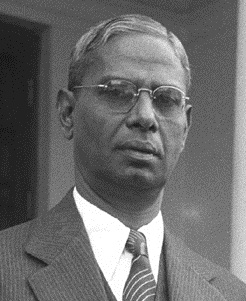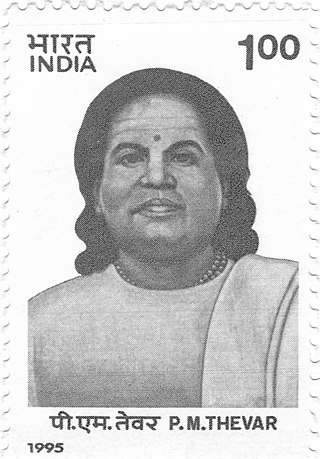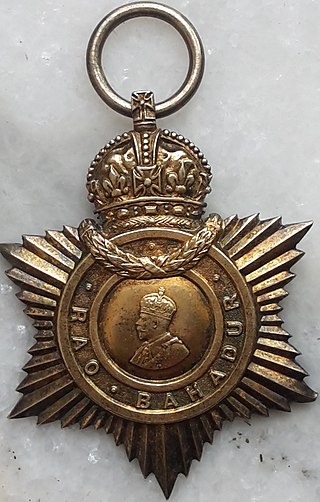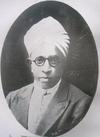
Kumbakonam, or Kudanthai, is a city municipal corporation in the Thanjavur district in the Indian state of Tamil Nadu. It is located 40 km (25 mi) from Thanjavur and 282 km (175 mi) from Chennai and is the headquarters of the Kumbakonam taluk of Thanjavur district. It is the second largest city in the district after Thanjavur. The city is bounded by two rivers, the Kaveri River to the north and Arasalar River to the south. Kumbakonam is known as a "Temple town" due to the prevalence of a number of temples here and is noted for its Mahamaham festival, which happens once in 12 years, attracting people from all over the country.

Hollis is a town in Hillsborough County, New Hampshire, United States. The population was 8,342 at the 2020 census, having grown 9% from the 2010 population of 7,684. The town center village is listed on the National Register of Historic Places as Hollis Village Historic District.

The Tamil Sangams were three legendary gatherings of Tamil scholars and poets that, according to traditional Tamil accounts, occurred in the remote past. Scholars believe that these assemblies were originally known as kooṭam or "gathering," which was also a name for Madurai. Three assemblies are described. The legend has it that the first two were held in cities since "taken by the sea", the first being called Kapatapuram, and the third was held in the present-day city of Madurai.

Sir Ramasamy Chetty Kandasamy Shanmukham ChettyKCIE was an Indian lawyer, economist and politician who served as first Finance Minister of India from 1947 to 1948. He also served as President of India's Central Legislative Assembly from 1933 to 1935 and Diwan of Cochin kingdom from 1935 to 1941.

Ukkirapandi Muthuramalinga Thevar, also known as Pasumpon Muthuramalinga Thevar, was a politician, patriarch of Thevar community. He was elected three times to the national Parliamentary Constituency. The birth anniversary of Muthuramalinga Thevar on October 30 is celebrated annually by the Thevar community in the southern districts of Tamil Nadu as Thevar Jayanthi.

Minjur Bhakthavatsalam was an Indian independence activist and politician who served as the chief minister of Madras State from 2 October 1963 to 6 March 1967. He was the last Congress chief minister of Tamil Nadu and the last to have taken part in the Indian independence movement.

Rao Bahadur and Rai Bahadur, abbreviatedR.B., was a title of honour bestowed during British rule in India to individuals for outstanding service or acts of public welfare to the Empire. From 1911, the title was accompanied by a medal called a Title Badge. Translated, Rao means "King", and Bahadur means "Brave". Bestowed mainly on Hindus, the equivalent title for Muslim and Parsi subjects was Khan Bahadur. For Sikhs it was Sardar Bahadur.

Tamil Nadu Legislative Council was the upper house of the former bicameral legislature of the Indian state of Tamil Nadu. It began its existence as Madras Legislative Council, the first provincial legislature for Madras Presidency. It was initially created as an advisory body in 1861, by the British colonial government. It was established by the Indian Councils Act 1861, enacted in the British parliament in the aftermath of the Indian Rebellion of 1857. Its role and strength were later expanded by the second Council Act of 1892. Limited election was introduced in 1909. The Council became a unicameral legislative body in 1921 and eventually the upper chamber of a bicameral legislature in 1937. After India became independent in 1947, it continued to be the upper chamber of the legislature of Madras State, one of the successor states to the Madras Presidency. It was renamed as the Tamil Nadu Legislative Council when the state was renamed as Tamil Nadu in 1969. The Council was abolished by the M. G. Ramachandran administration on 1 November 1986. In 1989, 1996 and 2010, the DMK regime headed by M. Karunanidhi tried to revive the Council. The former AIADMK regime (2016-2021) expressed its intention not to revive the council and passed a resolution in the Tamil Nadu Legislative Assembly in this regard.
P. K. Mookiah Thevar (1923–1979) was an Indian politician.
K. Ponmudi is an Indian politician and the Minister for Higher Education of Tamil Nadu, who was disqualified in 2023 after the Madras High Court convicted him in the disproportionate assets case. He was the Minister for Higher Education of Tamil Nadu from 2006 to 2011. He was born in T. Edaiyar in the Villupuram district. He has a bachelor's degree in law, a master's degree in history, political science and public Administration and a doctorate in political science. He is an alumnus of Annamalai University. Before entering professional politics, he was a professor in the Villupuram government college. He has been elected to the Tamil Nadu assembly five times. From 1989 to 1991 during Dravida Munnetra Kazhagam rule he was the Minister for Health, and from 1996 to 2001 he was the Minister for Transport and Highways. He authored a book titled Dravidian Movement in India and Black Movement in the U.S.A.

Tiruvengimalai Sesha Sundara Rajan (1880–1953) was an Indian medical doctor, politician and freedom-fighter who served the Minister of Public Health and Religious Endowments in the Madras Presidency from 1937 to 1939.

Kala Venkata Rao was an Indian independence activist and politician. He served as the Minister for Revenue in the governments of the Madras Presidency and Andhra Pradesh. He also served as the Minister of Finance in the latter.
S. Murugaiyan was an Indian politician, former Member of parliament, Lok Sabha and former Member of the Legislative Assembly of Tamil Nadu. He was elected to the Tamil Nadu legislative assembly from Thurinjapuram constituency in 1962 and from Kalasapakkam constituency as a Dravida Munnetra Kazhagam candidate in 1967, and 1971 elections. He was also elected as Member of Parliament from Tirupattur constituency in 1980 lok sabha election. He then served as Municipal Chairman of Tiruvannamalai and leader of Tiruvannamalai Sengunthar Mahajana sangam.
Adhur Shanker Alva was an Indian politician, lawyer and Member of Parliament who represented the Mangalore Constituency in the 3rd Lok Sabha. He was a member of Indian National Congress.

Kerala Nadvathul Mujahideen (KNM) is an Islamic organization in the state of Kerala founded in 1950. The organization is part of the Islamic reformist Mujahid Movement and follows the principles of Salafism. The Kerala Nadvathul Mujahideen was formed as a result of renaissance activities among Keralite Muslims led by scholars and clerics such as Sheikh Hamadani Thangal, K.M. Moulavi and Vakkom Moulavi and E. Moidu Moulavi and Ummer Moulavi. Kerala Nadvathul Mujahideen is considered as the successor of Kerala Muslim Aikya Sangam, the first Muslim organization in the state of Kerala, founded in 1924. The Mujahid movement laid the foundations of Islamic renaissance in Kerala by campaigning against corrupted practices of the Sufi orders, superstitions, false beliefs, polytheism etc, and called for the revival of true Islamic practices to the Muslim community in Kerala which had until then been severely lacking in crucial aspects of religious and socio-civic knowledge. The Mujahids consider themselves as proponents of authentic Islamic reform, pursuing a purified concept of Tawhid.
Gnanou Diagou (1877–1959) was a lawyer and professor of law in Pondicherry, India. He is known for translating the Tirukkural into French.
Mungtu Ram Jaipuria was an Indian social worker, industrialist and educationist and the founder of Seth M.R. Jaipuria Schools. The Government of India awarded him Padma Bhushan, the third highest Indian civilian award, in 1971.

Rao Sahib Ayyathan Gopalan, popularly known as Darsarji and Darsar Sahib, was an Indian doctor, surgeon, professor, writer, philanthropist, social reformer, and Renaissance leader from Kerala. He is the founder of the Sugunavardhini movement (1900) and Depressed classes mission (1909) and also the leader and propagandist of Brahmo Samaj (1893) in Kerala. He denounced idol worship and fought to end those social practices in Kerala that he thought were unethical. Among his followers were Brahmananda Swami Sivayogi, Vaghbatananda, and Brahmavadhi P. Kunhiraman. Gopalan titled P. Kunhiraman as "Brahmavadhi" and Sivayogi as "Brahmananda Swami".












